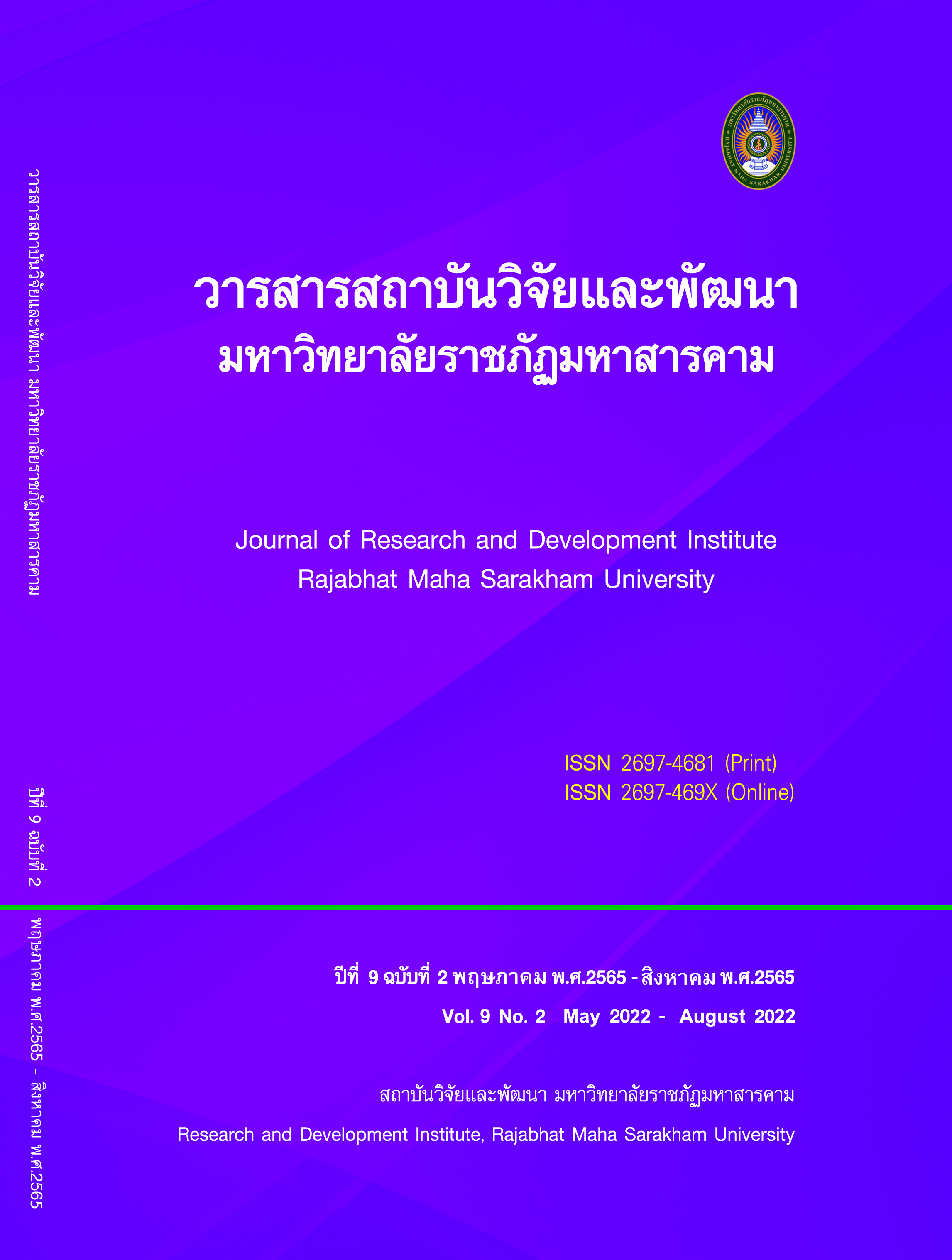The guidelines for promoting reading of primary school grade 1 students under Roi Et primary educational service area office 2
Keywords:
Guidelines for promoting reading of primary school grade 1studentsAbstract
The purposes of this research were to 1) study the current and the desirable state of promoting reading of primary school grade 1 students 2) study the guidelines for promoting reading of primary school grade 1students under Roi Et primary educational service area office 2. The research process was divided to 2 phases: Phase ; to study the current and the desirable state of study the current and the desirable state of promoting reading of primary school grade 1students. The sample group consisted of 317 people as follows: 158 school administrators and 159 teachers. The research tool was a questionnaire, confidence of the whole .78. The statistics used for data analysis were mean, percentage, standard deviation. Phase 2; to study the guidelines for promoting reading of primary school grade 1 students. The target group is 9 experts. The research tool was interview form, Data analysis by content analysis.
The research results were found that
- The current state in overall was high average and the desirable state in overall was in the highest level. The priority need rank from high to low level was 1) building a network of participation 2) formulating reading promotion policies and strategies, 3) organizing reading promotion activities 4) developing teachers and personnel and 5) creating and developing learning resources, respectively.
- The guidelines for promoting reading of primary school grade 1 students, include 1) Provide opportunities for stakeholders to participate 2) Set missions that are consistent with the policies of the Ministry of Education. Create common goals and have ongoing periodic monitoring and evaluation 3) Activities to campaign on the love of reading on important days Organizing a book corner or reading corner in an educational institution 4) create network of participation Exchange of knowledge and training to develop teachers and personnel, through the research process 5) Develop the library to be a learning center for students' reading.
References
Anawatsiriwong, P. & Anawatsiriwong, T. (2011). Reading Makes Happiness: Creating a Reading Culture Make reading a culture. Bangkok: Plan Plinting.
Duangphimai, P. (2017). Promoting Reading in Schools Under the Secondary Educational Service Area Office, District 2. Bangkok: Dhurakij Pundit University.
Palani, K. K. (2012). Promising Reading Habits and Creating Literate Social. International Reference Research Journal Vol. 3,2(1), 91.
Panyarot, S. (2012). he benefit of reading is the window of the world wide. [Online]. www.oknation.net. [2 April 2020]
Rungarun, W. (2012). Factors Affecting the Implementation of the Office of the Permanent Secretary, Ministry of Education. Nakhon Pathom: Silpakorn University.
Samkosed, W. (2011). Suggestions for an alternative education system suitable for the health of Thai people. Bangkok: Parbpim Printing.
Sangsri, S. (2013). Evaluation of policy implementation of promoting reading habits into practice at primary level. both in schools and outside the school system. Nonthaburi: Sukhothai Thammathirat Open University.
Sevikul, P. (2012). he city (of people who do not read). World Books. [Online]. http://www.komchadluek.net. [2 April 2020]
Somprayoon, W. (2010). Techniques for teaching Thai language. Bangkok : Academic flowers.
Srisa-ard, B. (2013). Preliminary research. (9thed). Bangkok : Suwiriyasan.
Sukprasert, A. (2012). Reading behavior of youth in slum communities in Mengrai sub-district, Chiang Mai province. Chiang Mai: Chiang Mai University.
Downloads
Published
How to Cite
Issue
Section
License
Copyright (c) 2022 Journal of Research and Development Institute Rajabhat Maha Sarakham University

This work is licensed under a Creative Commons Attribution-NonCommercial-NoDerivatives 4.0 International License.
Articles that are published are copyrighted by the authors of the articles







